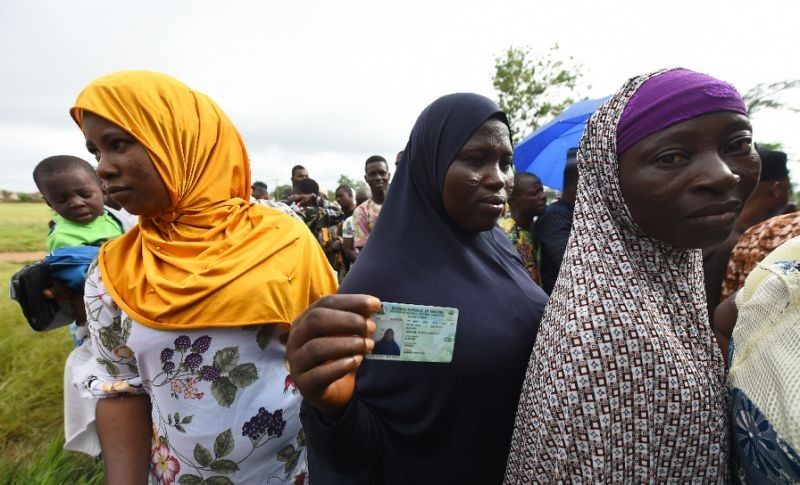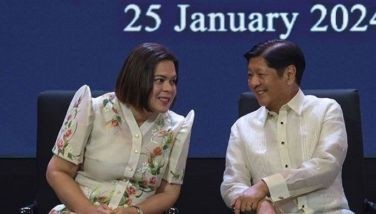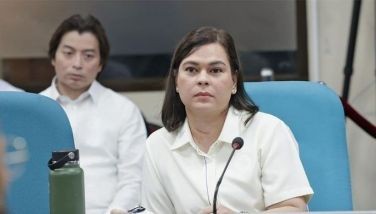Women urge Nigeria to revamp 'prehistoric' politics

Lagos - When Ndi Kato decided to run for office in Nigeria, she found few models for young women who wanted to be in politics.
"Women said, 'Don't get excited, the system will isolate you, you're a token'," Kato, 29, told AFP. "The future didn't look so bright."
But she wanted to make a difference and in February kicked off her campaign for the House of Assembly in the northern state of Kaduna.
From there, it was a constant battle against the patriarchy.
"There is this condescension to a woman's candidacy," she said. "They'll tell you, 'Oh, wow! Cute, we're happy to see a beautiful woman but you're not going to win'."
On the campaign trail, Kato was often the only woman in the room and said when she did speak up she was "hepeated" -- her suggestions were ignored until a man said it and was praised.
She looked on as her male counterparts across the country received generous donations from political party elders that helped them secure their candidacies.
Despite her best efforts, she didn't make it through the party primaries.
- Poor ranking -
Kato's experience is far from an isolated case in Africa's most populous nation and leading oil producer, home to more than 190 million people.
The West African giant ranks 180th out of 190 countries for women's representation in politics, according to a 2017 UN report.
Women make up just 5.8 per cent of the ministers in President Muhammadu Buhari's 36-member cabinet.
In parliament, just seven out of the 109 members of the upper chamber, the Senate, are female. In the lower House of Assembly, women hold 19 of the 360 seats.
Those numbers are not expected to change dramatically as presidential, parliamentary and state elections approach in four months' time.
Last week, the Daily Trust newspaper said only 31 women were running for parliament for the ruling All Progressives Congress (APC) and main opposition Peoples Democratic Party (PDP).
High fees for nomination forms have been seen as a factor, even though the APC offered a half-price discount for female prospective candidates and the PDP made applications free.
- 'Prehistoric times' -
Poor female representation in Nigerian politics stands at odds with the situation elsewhere in Africa, notably Rwanda, where more than 60 percent of parliamentary deputies are women.
Ethiopia's Prime Minister Abiy Ahmed this month appointed a new cabinet with half of all posts going to women, including defence, the latest move in his radical reform programme.
Nigeria's Buhari was criticised for saying alongside German Chancellor Angela Merkel in 2016 that his wife, Aisha, "belongs to my kitchen and my living room and the other room".
Ayisha Osori, a Nigerian lawyer who ran for office in 2015, has written a book about her campaign, "Love Does Not Win Elections".
In it she provides advice for anyone wanting to get elected, including providing "mint banknotes" for voters, and rails against an ossified system that serves only the elite.
"Think about prehistoric times, the men hunted and the women cooked, that's where we are in Nigeria," she told AFP.
"Many of the women who have won seats to the Senate are either wives or daughters of senators or governors. It's dishonest to say any representation is better than no representation."
Most women in power are more interested in preserving the status quo than creating greater opportunities for others.
"Women are just put in a ghetto" and pressured to conform to traditional gender norms centred on family and motherhood, she added.
A recent women's conference for example was organised by the "Committee of Wives of Lagos State Officials".
- 'Uphill battle' -
Mulikat Akande-Adeola, 57, was the first female majority leader of the House of Representatives and knows she is an exception to the rule.
In 2007, she watched as a female colleague was dumped as speaker after three rocky months.
"They felt because you are a woman you can't be seen as controlling men," said Akande-Adeola, who is running for a Senate seat.
"The party structure gives only room for men."
For the situation to change, female politicians want more financial support.
Similarly, there are calls for changes to party organisation, including quotas, to make politics more inclusive.
Despite losing out on her first try, Kato says she still wants a political career even if it is likely to be an "uphill battle.
"If you believe in women candidates, you need to put your money where your mouth is," she said.
- Latest
- Trending
































